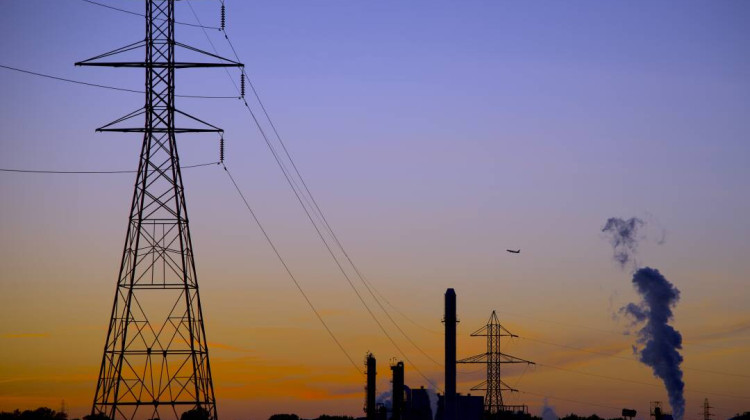A U.S. senator from Missouri wants to block an electric power line project that would run from western Kansas to Indiana's border with Illinois.
U.S. Sen. Josh Hawley (R-Mo.) said it takes land away from Missouri farmers and ranchers. Those in favor of the project say it would make electricity in the U.S. more reliable and save customers money on their electric bills.
The 800-mile Grain Belt Express project would link four regional grids in the U.S. together. This makes it so, for example, if a wind farm in Kansas is generating too much electricity, utilities in Indiana can buy that cheap power — saving their customers money.
Transmission lines can carry any kind of energy — including natural gas and coal — but an interconnected grid is especially important for renewables. It can bring solar or wind power to a state on a day where the sun might not be shining or the wind might not be blowing.
Wendy Bredhold is with the National Audubon Society's transmission initiative. It encourages building power lines to get more clean energy on the grid while also making them safer for birds.
Bredhold said having a more connected grid is also important for reliable power — just look at the 2021 winter storm in Texas.
"Because they're not connected to the rest of the country, a lot of people lost power. And that ended up being a deadly incident for a lot of people," she said.
READ MORE: Bill giving Indiana utilities dibs on interstate power line projects passes state Senate
Join the conversation and sign up for the Indiana Two-Way. Text "Indiana" to 765-275-1120. Your comments and questions in response to our weekly text help us find the answers you need on climate solutions and climate change at ipbs.org/climatequestions.
U.S. Senator Hawley asked the U.S. Department of Energy to go back on its nearly $5 billion loan for the project. He said in a post on his X account that Energy Secretary Chris Wright agreed to do so. The DOE did not respond to an email confirming Wright's plans.
Invenergy, the company behind the Grain Belt Express project, said the project is expected to save customers in the two regional grids that serve Indiana more than $20 billion each.
It's important to note, by law, Indiana utilities can't get more than 15 percent of their energy from the grid during peak demand. The majority of their power has to come from their own energy sources or contracts with other companies.
The Indiana Energy Association declined to comment.
Rebecca is our energy and environment reporter. Contact her at rthiele@iu.edu or on Signal at IPBenvironment.01. Follow her on Twitter at @beckythiele.
 DONATE
DONATE








 Support WFYI. We can't do it without you.
Support WFYI. We can't do it without you.